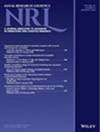零售商以消费者为基础的单向替代补货政策,以增加利润和减少食物浪费
IF 2.1
4区 管理学
Q3 OPERATIONS RESEARCH & MANAGEMENT SCIENCE
引用次数: 6
摘要
零售商可以利用消费者的替代意愿来提高利润、服务水平和减少浪费。本文探讨了这种改进在多大程度上可以通过补充决策来实现。比较了两种订购策略:一种是忽略产品替代的策略,另一种是同时决定所有产品的订购数量并预测基于缺货的替代的新策略。这两种策略都通过基于模拟的优化进行了分析。除了通过精确枚举(作为基准)找到最优参数值或各种设置外,我们还为单向替换的情况提出了启发式搜索过程。启发式方法可以快速找到(几乎)最优参数值,并且在几乎所有设置下都能找到最优参数值。当预期替代时,平均利润增加了近9%,而浪费水平可以减少35%以上。在服务水平和利润/浪费水平之间找到了一个明确的权衡。假设零售商的目标是利润最大化,一种产品的服务水平可能很低甚至为零。结果提供了以下管理见解:(i)服务水平和浪费水平最大化零售商的利润,(ii)产品是否应该从分类中删除,(iii)利润损失和浪费增加设置更高(次优)的服务水平,例如出于战略原因。相反,人们可以从结果中了解到,对于利润最大化的零售商来说,产品的利润率应该是多少,才能证明一定的服务水平是合理的。这些见解或许对那些主要目标超越利润最大化的零售商有用。本文章由计算机程序翻译,如有差异,请以英文原文为准。
Retailer replenishment policies with one-way consumer-based substitution to increase profit and reduce food waste
Retailers can exploit the consumer willingness to substitute to improve their profit, service level and waste. This paper investigates to what extent such improvement can be realised by the replenishment decisions. Two order policies are compared: one policy neglecting product substitution, and a new policy that decides on order quantities for all products simultaneously meanwhile anticipating stock-outbased substitution. Both policies are analysed by simulation-based optimisation. Besides finding the optimal parameter values or a variety of settings by exact enumeration (as a benchmark), we present for the case of one-way substitution a heuristic search procedure. The heuristic finds (nearly) optimal parameter values quickly and turns out to find optimal parameter values in almost all settings. An average profit increase of almost 9% is obtained when anticipating on substitution, while waste levels can decrease with more than 35%. A clear trade-off between service levels and profit/waste levels is found. Assuming the retailer aims at profit maximisation, the service level of one product maybe very low or even zero. The results provide the following managerial insights in: (i) the service levels and waste levels that maximize the retailer’s profit, (ii) whether a product should be removed from the assortment, (iii) the profit loss and waste increase of setting a higher (sub optimal) service level, e.g. for strategic reasons. Reversely, one may learn from the results what the profit margin of a product should be to justify a certain service level to a profit maximizing retailer. These insights maybe useful to retailers whose primary objective is beyond profit maximisation.
求助全文
通过发布文献求助,成功后即可免费获取论文全文。
去求助
来源期刊

Naval Research Logistics
管理科学-运筹学与管理科学
CiteScore
4.20
自引率
4.30%
发文量
47
审稿时长
8 months
期刊介绍:
Submissions that are most appropriate for NRL are papers addressing modeling and analysis of problems motivated by real-world applications; major methodological advances in operations research and applied statistics; and expository or survey pieces of lasting value. Areas represented include (but are not limited to) probability, statistics, simulation, optimization, game theory, quality, scheduling, reliability, maintenance, supply chain, decision analysis, and combat models. Special issues devoted to a single topic are published occasionally, and proposals for special issues are welcomed by the Editorial Board.
 求助内容:
求助内容: 应助结果提醒方式:
应助结果提醒方式:


